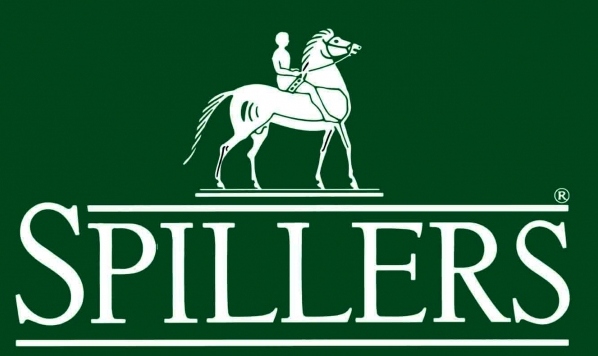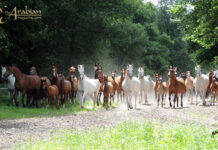The scientists behind the SPILLERS brand, together with international collaborators, are continuing to share their latest research on Pars Pituitary Intermedia Dysfunction (PPID) to help improve the nutrition management of senior horses with the condition.
The feed brand, which is a part of Mars Incorporated, is also proud to be associated with a new centre for aged horse research, at the University of Kentucky in the USA. The Linda Mars Aged Horse Care and Education Facility has been made possible with Support from philanthropist and avid horsewoman Linda Mars.
PPID, also known as Cushing’s syndrome, is a common condition in older horses and ponies. Clinical signs of PPID may include delayed coat shedding and a long curly coat as well as loss of muscle mass and weight loss (although PPID sufferers can also be overweight or obese), abnormal fat deposition, and depression/lethargy. Some PPID animals may be at increased risk of suffering from laminitis, especially if they also have insulin dysregulation.
As part of a major international project to improve the early diagnosis, healthcare, husbandry and nutritional management of PPID, the makers of SPILLERS, via the WALTHAM™ Equine Studies Group, together with collaborators led by PhD Student Dr Nicolas Galinelli from The University of Melbourne, Australia, have recently presented1 on an international survey of feeding practices among owners of horses with PPID. The results have shown different management practices between the UK, Australia and the USA and just over 10% of respondents were not feeding any complementary feed or supplements, just forage. Although laminitis was a major concern when choosing a diet for a PPID horse, grain-based complementary feed was still selected by 15% of owners in this group. This highlights the need for clear practical information on the most suitable ways to feed the PPID horse.
SPILLERS Equine Clinical Nutrition Specialist Pat Harris is continuing to spread the word about the latest research on PPID and nutrition management. She co-presented a webinar on care and management of the older horse for World Horse Welfare at the beginning of the year, which included information on this important condition. Pat has also recently presented a paper at the American College of Veterinary Internal Medicine (ACVIM) Forum on feeding the PPID horse and is due to present on the same topic at American Association of Equine Practitioners Convention later this month. Four abstracts on older/PPID horses and three on insulin dysregulation have just been accepted for the Global Equine Endocrinology Symposium in 2023. In addition, a collaborative article on feeding the PPID horse is available online in the journal Equine Veterinary Education (EVE)2.
As a part of Mars Incorporated, the SPILLERS brand is also helping to advance research into aged horses. The University of Kentucky has begun construction of the Linda Mars Aged Horse Care and Education Facility, which will help lead the way on breakthroughs in care for revered older horses, a demographic estimated to make up approximately one-third of the worldwide horse population.
The University of Kentucky’s Aged Horse Research Program was established by Amanda Adams, associate professor in the Gluck Equine Research Center. She has established and supports a unique herd of aged horses who have conditions including PPID, obesity, equine metabolic syndrome and insulin dysregulation. In addition to advancing aged horse research and unlocking new ways of caring for aging horses with these conditions, the facility will help train the next generation of scientists and will serve as an important resource for the university’s equine undergraduate students.
For the past 20 years the SPILLERS brand, via the WALTHAM™ Equine Studies Group has been involved with numerous research collaborations which bring together world-leading equine veterinary, nutrition and research experts to support the wellbeing, performance and longevity of senior horses and ponies. The journey began in the early 2000s investigating age related changes in taste and feeding behaviour in stabled horses. Since then, research has extended to include nutrient digestibility, protein requirements, insulin response, gut microflora, travelling stress and PPID.
“We are proud to be able to help benefit the lives of senior horses in the UK and around the world, not only with our ground-breaking research projects but also with the new Linda Mars Aged Horse Care and Education Facility,” said SPILLERS Product Manager Sarah Nelson. “We are extremely fortunate to be a part of Mars Incorporated, which enables us to remain at the forefront of equine nutritional science.”
To find out more about the SPILLERS range of senior feeds contact our Care-Line on + 44 (0)1908 226626 or visit www.spillers-feeds.com.
- Galinelli, N.C., Bamford N, Harris PA, & Bailey SR (2022) Survey of feeding practices among owners of horses with pituitary pars intermedia dysfunction. In proceedings of 26th Congressof the European Society of Veterinary and Comparative Nutrition p124
- Galinelli, NC, Bailey, SR, Bamford, NJ and Harris, PA, 2022. Nutritional considerations for the management of equine pituitary pars intermedia dysfunction. Equine Veterinary Educationin press https://beva.onlinelibrary.wiley.com/doi/abs/10.1111/eve.13593











